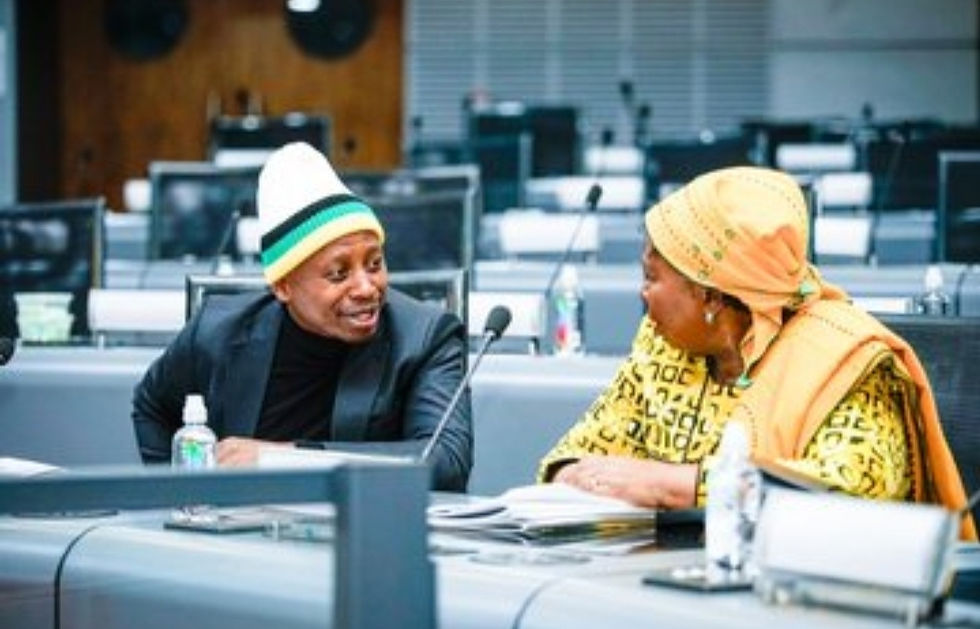ANC Existential Crisis Becomes More Visible
- Mpho Dube
- Aug 13, 2025
- 2 min read

ANC NEC members Andile Lungisa and Dr Nkosazana Dlamini-Zuma
The African National Congress (ANC) is grappling with an existential crisis, with NEC member Andile Lungisa calling for the disbandment of the party’s top leadership structure, citing “political bankruptcy” and failure to lead.
The ANC’s electoral decline, plummeting to 40% in the last election, has forced the party into a Government of National Unity (GNU) with the DA and other smaller parties. Some ANC NEC members attribute this decline to the party’s loss of political consciousness and internal conflicts. The alliance with the DA has blurred the ANC’s identity and alienated its base, according to NEC members.
Some ANC NEC members describe President Cyril Ramaphosa as weak and indecisive, criticizing him for protecting ministers embroiled in scandals, such as the VBS looting scandal, and for failing to provide decisive leadership. Ramaphosa’s tendency to protect his allies while dismissing those who are not has also raised concerns. “He’s got nothing to lose,” one NEC member said. “This is his last term, and he’s forcing this national dialogue that has been rejected by several foundations, including Thabongebi’s foundation. It’s going to affect the ANC when they go to the polls.”
Lungisa’s solution is drastic: the current NEC must be disbanded and replaced with a transitional leadership structure. He believes this is the only way to restore the party’s credibility and unite its members. “This NEC cannot unite the movement, it cannot reform the ANC, and it cannot be trusted to lead renewal,” Lungisa reportedly said during an NEC meeting.
The ANC’s internal conflicts and leadership failures have created a perfect storm. As Lungisa’s comments spark debate, it’s clear that the party’s future hangs in the balance. Will the ANC heed the call for change, or will it continue down a path of decline? The growing discontent within the party suggests that radical restructuring may be inevitable.
The ANC’s decline has far-reaching consequences, not only for the party but also for the country. The loss of public trust and confidence in the party’s ability to lead has created a sense of uncertainty and instability. As the party struggles to find its footing, it’s clear that something needs to change.
Lungisa’s call for a transitional leadership structure has sparked a debate about the party’s future. Some NEC members agree that a change in leadership is necessary to restore the party’s credibility and unite its members. Others, however, are more cautious, arguing that the party needs to focus on rebuilding its base and reconnecting with its core values.
The ANC’s existential crisis is a complex issue that requires a nuanced and thoughtful approach. As the party navigates this challenging period, it’s clear that the decisions made now will have far-reaching consequences for its future. Will the ANC heed the call for change and embark on a path of renewal, or will it continue down a path of decline? Only time will tell.




Comments